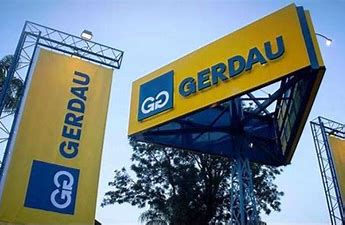If the operation proves viable, the fund’s investments in the country could reach R$1.5bn
05/29/2024
/i.s3.glbimg.com/v1/AUTH_37554604729d4b2f9f3eb9ad8a691345/internal_photos/bs/2024/T/l/rWxWrBQ3WKAlmcuKjnOg/280524appian10.jpg)
Paulo Castellari — Foto: Gabriel Reis/Valor
Appian Capital, a British investment fund focused on mining projects, is investing an additional R$350 million in Brazil to enable graphite exploration. Considered a critical mineral, graphite is essential for battery production, with 70% of the global supply currently sourced from China. If the initial operation confirms its viability, the fund’s investments in the country could reach R$1.5 billion over the next five to eight years.
With these resources, Appian will establish a demonstration unit—a pilot mineral beneficiation operation—with a production capacity of 5,500 tonnes of graphite per year at the Boa Sorte mine in Itagimirim, Bahia. Additionally, it will develop two technical studies in areas controlled by Graphcoa, a joint venture managed by the fund, which has nine mining projects spanning southern Bahia and northern Minas Gerais.
According to Paulo Castellari, CEO of Appian Capital Brazil, two of the fund’s nine global mining projects are located in Brazil. “Brazil has been an area of significant interest since 2019,” he said. At that time, Appian invested in Atlantic Nickel, which produces nickel in Bahia, and Mineração Vale Verde, a copper operation in Alagoas.
The fund is focused on materials that can aid in the energy transition, such as copper, nickel, and lithium, which are used in the positive pole (cathode) of batteries. However, they also see potential in graphite, as there is currently no economically viable substitute for this mineral used in the negative pole (anode) of batteries. “What lies ahead for graphite is fascinating,” he said.
Mr. Castellari anticipates being able to decide on the next phases of the project in Brazil, aiming for 25,500 tonnes annually, by the first half of next year after conducting tests and certifications with potential clients.
In the future, the installed capacity in the Brazilian operation could increase to 40,000 tonnes, potentially reaching 65,000 tonnes by exploring two of Graphcoa’s nine areas. “It could be the largest graphite project in the country,” said Mr. Castellari.
Currently, Brazil’s graphite production represents less than 2% of the global volume, even though the country holds deposits equivalent to a quarter of the world’s reserves. The global supply of graphite is around 1 million tonnes per year and is expected to reach 3.7 million tonnes by 2030. China’s share, which currently accounts for more than half of the production, is projected to decrease to 30%, Mr. Castellari notes.
On the demand side, a deficit is anticipated. Today, 2 million tonnes are consumed annually, with 1.4 million tonnes used for batteries. By 2030, consumption is expected to rise to 4.6 million tonnes, exceeding the projected supply.
With potential clients both domestically and internationally, the strategy is to assess the feasibility of verticalizing operations, possibly extending to battery production in the future. “The investment is not only in the use of batteries for vehicle electrification but also in general,” he said.
*Por Stella Fontes — São Paulo
Source: Valor International

/i.s3.glbimg.com/v1/AUTH_37554604729d4b2f9f3eb9ad8a691345/internal_photos/bs/2022/z/P/RBvMOKQ0OCwlZBLD0EAg/17bra-110-bndes-a6-img01.jpg)
/i.s3.glbimg.com/v1/AUTH_37554604729d4b2f9f3eb9ad8a691345/internal_photos/bs/2022/j/M/3hKK2vSlyI0TvM0pz2xg/igua-saneamento-divulgacao.jpeg)

/i.s3.glbimg.com/v1/AUTH_37554604729d4b2f9f3eb9ad8a691345/internal_photos/bs/2022/7/j/9T4ljDR4uqvWhG5Rc0ww/weg-fabrica-chan-divulgacao-weg.png)
/i.s3.glbimg.com/v1/AUTH_37554604729d4b2f9f3eb9ad8a691345/internal_photos/bs/2022/1/c/0Klx1ZSuACN3ksP3GRrw/150922suzano18.jpg)
/i.s3.glbimg.com/v1/AUTH_37554604729d4b2f9f3eb9ad8a691345/internal_photos/bs/2022/j/m/iaH8Y8S8A8OkpA9ZSorw/14emp-100-rodo-b3-img01.jpg)
/i.s3.glbimg.com/v1/AUTH_37554604729d4b2f9f3eb9ad8a691345/internal_photos/bs/2022/x/w/iehBycSxirGfEz1prCNw/12emp-100-bn-b3-img01.jpg)
/i.s3.glbimg.com/v1/AUTH_37554604729d4b2f9f3eb9ad8a691345/internal_photos/bs/2022/p/9/PGbrjhTeaabpdht0wBAA/09emp-100-diamante-b2-img01.jpg)
/i.s3.glbimg.com/v1/AUTH_37554604729d4b2f9f3eb9ad8a691345/internal_photos/bs/2022/2/s/15HAFYTmAnSE5dAdQTHQ/05emp-100-sendi-b3-img01.jpg)